Anthony Howell
Director, Center on Technology, Data, and Society
Associate Professor of Public Policy and Management
Arizona State University
Bio
Dr. Howell is the Director of the Center on Technology, Data, and Society and an Associate Professor of Public Policy and Management in the School of Public Affairs at ASU. He is an affiliate faculty member in the School of Geographical Sciences and Urban Planning and a senior sustainability scientist in the School of Global Futures. Prior to ASU, Dr. Howell served as an Associate Professor of Applied Microeconomics in the School of Economics at Peking University, China's flagship university. He also previously held several visiting positions as a Fulbright scholar at the Lincoln Institute of Urban Development and Land Policy (Beijing), a Science & Technology policy fellow at the National Academies of Sciences (Washington D.C.), and a research fellow at the Asian Development Bank (Manila). Dr. Howell holds a PhD in Geography (UCLA), M.S. degrees in Statistics (UCLA) and GIScience (MSU), and B.A degrees in Political Science, International Development, and Chinese Language and Culture (MSU).
Download my CV.
- Public Policy & Evaluation
- Economic Development
- Economic Geography
- Innovation & Entrepreneurship
- Firm Competitiveness
- Ethnic Disparities
- Labor Migration
- Sustainability
- Causal Inference
- Geospatial Analysis
- Network Analysis
- Chinese Economy
-
PhD in Geography, 2014
University of California - Los Angeles
-
MS in Statistics, 2012
University of California - Los Angeles
-
MS in Geography/GIS, 2009
Michigan State University
-
BA in Chinese Studies (Equiv.), 2009
Michigan State University
-
BA in Political Science, 2007
Michigan State University
-
BA in International Development, 2006
Michigan State University
Research Overview
Dr. Howell's research portfolio includes more than 30 articles in leading journals (Nature Human Behavior, Annals of the AAG, Journal of Development Economics, Journal of Urban Economics, Journal of Economic Geography). His work focuses on designing, implementing, and evaluating policy interventions, advancing theories of human and firm behavior, and exploring drivers of economic development across rural, urban, and regional contexts. Dr. Howell has secured nearly $1 million in funding, including from the private sector (Anthropic) and numerous government agencies in the U.S. (National Science Foundation; Department of State) and around the world (South Korean National Research Foundation; China National Natural Science Foundation). His research is internationally recognized, frequently cited in media and government reports. Dr. Howell's research expertise encompasses in-depth fieldwork experience, such as survey design and data collection, along with a strong emphasis on quantitative and computational social science methods, including causal inference, network analysis, machine learning, and spatial analysis. Dr. Howell's work contributes to several public policy domains, focusing on:
-
The implications of industrial and place-based policies in promoting entrepreneurship and enhancing firm and regional competitiveness.
-
The impacts of ‘policy reversal’ shocks on local economic development, exploring the strategic responses and adaptability of households, firms, and communities.
-
The role of social assistance programs in addressing ethnic disparities, supporting self-employment, and fostering occupational change.
Research Themes and Expertise
Competitiveness Policy and Firm Performance
This research combines natural experiments with large administrative micro-data to investigate the drivers of various dimensions related to local and global firm competitiveness. Dr. Howell has published extensively on the impact of economic reforms (e.g., FDI liberalization, market reforms) and industrial policies (e.g., tax reform, R&D subsidies) on firm performance (R&D spending, patenting, commercialization, total factor productivity, exports and outward FDI). Additionally, his research employs spatio-temporal network analysis of China's patent citations to study technological knowledge spillovers and their role in firm innovation and competitiveness. Dr. Howell's work suggests that economic geography and competitiveness policies significantly contributed to China's rapid rise in the global economy in the early 21st century.
Policy Reversals and Local Economic Development
This research examines the often-overlooked implications of `policy reversal' shocks, which involve the temporary suspension, permanent termination, or fundamental shift of existing policies or programs. It aims to identify critical design features to minimize undesirable and inequitable outcomes potentially induced by the policy change. From this lens, Dr. Howell has published on diverse topics ranging from investigating the effects of: (i) scaling down cash transfer programs on occupational change and local economic development; (ii) waiving matching mandates for public transport infrastructure on entrepreneurship, local investment, and economic recovery; (iii) dismantling state-owned enterprises on private-sector firm formation and success; and (iv) a discriminatory buyer tax on foreign investment behavior and housing affordability.
Social Policy, Ethnicity, and Employment
For nearly two decades, Dr. Howell has been a pioneering force in studying ethnic disparities in China, a country with a large and often understudied ethnic minority population. His research is among the first to document the extent of country-wide ethnic disparities across a diverse set of household outcomes (migration, self-employment, occupational change, wages, income, energy poverty, carbon footprints, and adaptation to extreme climate events). His research investigates the role of cash transfers and other social assistance programs on reducing ethnic disparities, alleviate poverty, and increase household income. His work also explores ethnic disparities in access to finance for micro-business formation and implications for business performance.
Featured Research
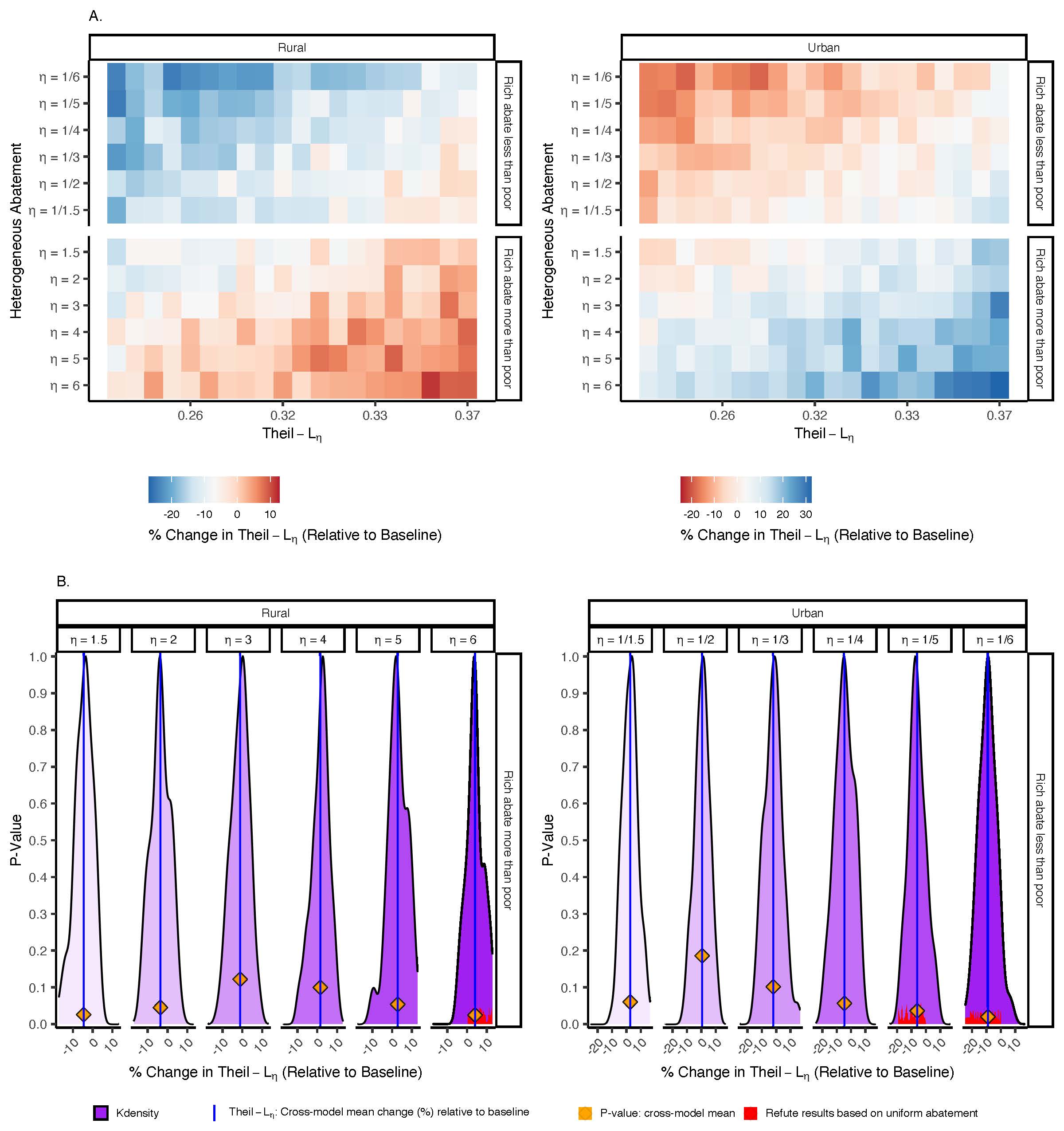
Howell, A. (2024). Spatioethnic Household Carbon Footprints in China and the Equity Implications of Climate Mitigation Policy: A Machine Learning Approach. (Annals of the American Association of Geographers)
Topic: Machine learning methods used to simulate household abatement scenarios under a carbon tax, and implications for income and ethnic inequality.
Howell, A. (2024). Rural road stimulus and the role of matching mandates on economic recovery in China. (Journal of Development Economics)
Topic: Staggered difference-in-differences design to study impacts of rural road stimulus on labor market outcomes and economic recovery.
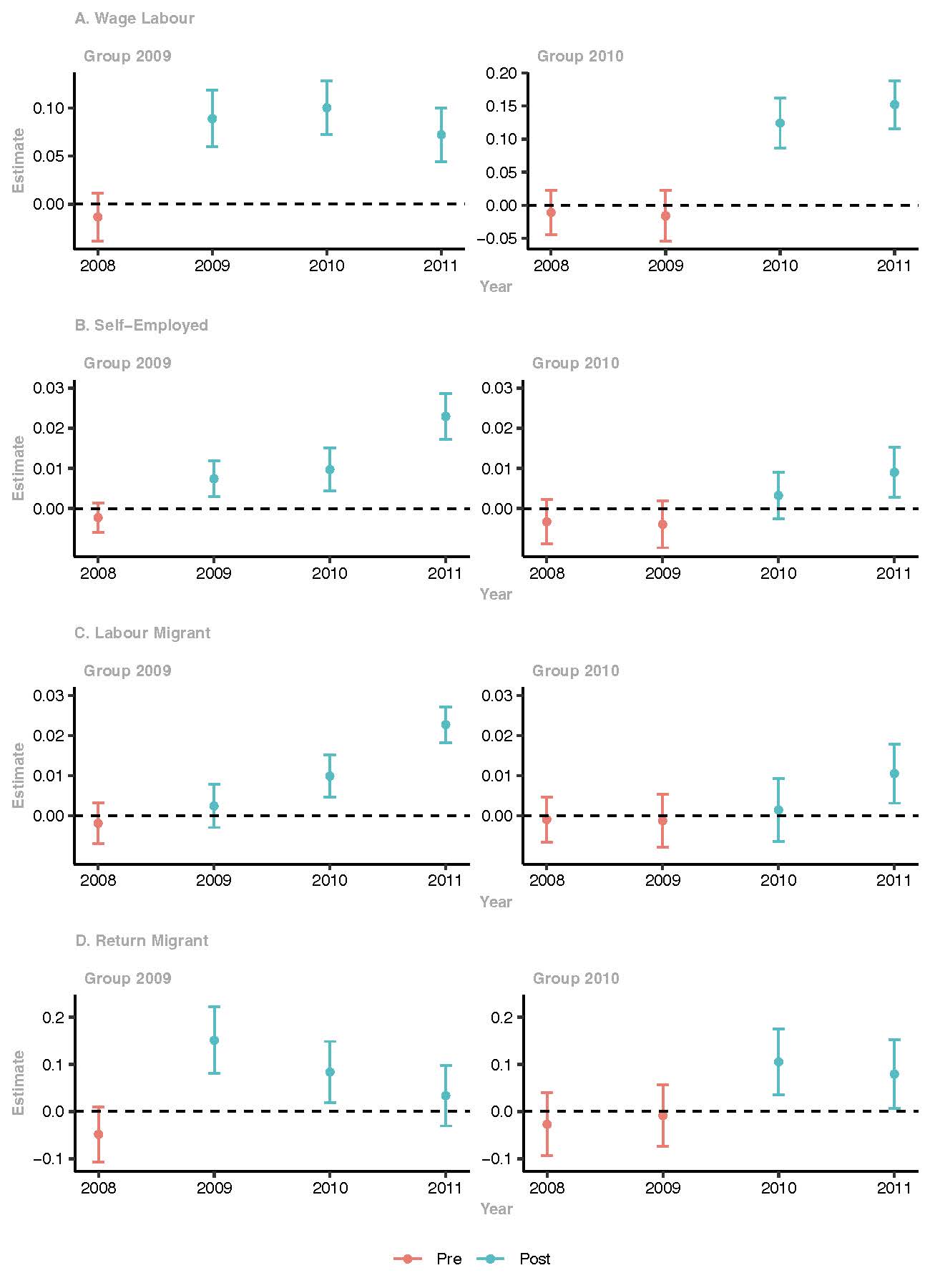
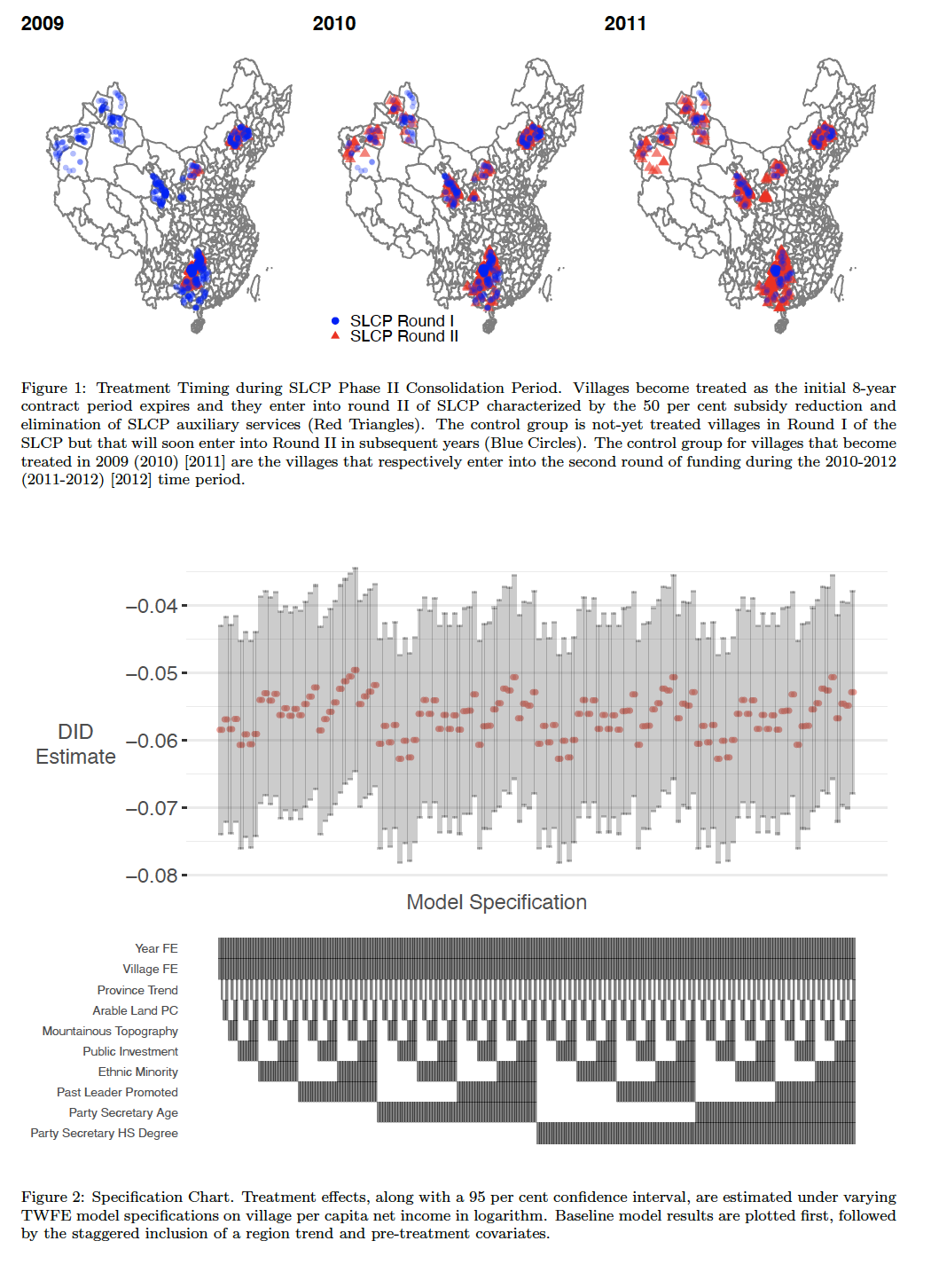
Howell, A. (2022). Socio-economic Impacts of scaling back a massive payments for ecosystem services program in China. (Nature-Human Behavior)
Topic: Staggered difference-in-differences research design used to explore adverse effects of scaling-down a conservation program on rural farmers.
Howell (2022). Impact of a guaranteed minimum income program on rural–urban migration in China. (Journal of Economic Geography)
Topic: A regression discontinuity design used to study impacts of cash transfers on poor ethnic households' financial constraints and rural-urban migration decisions.
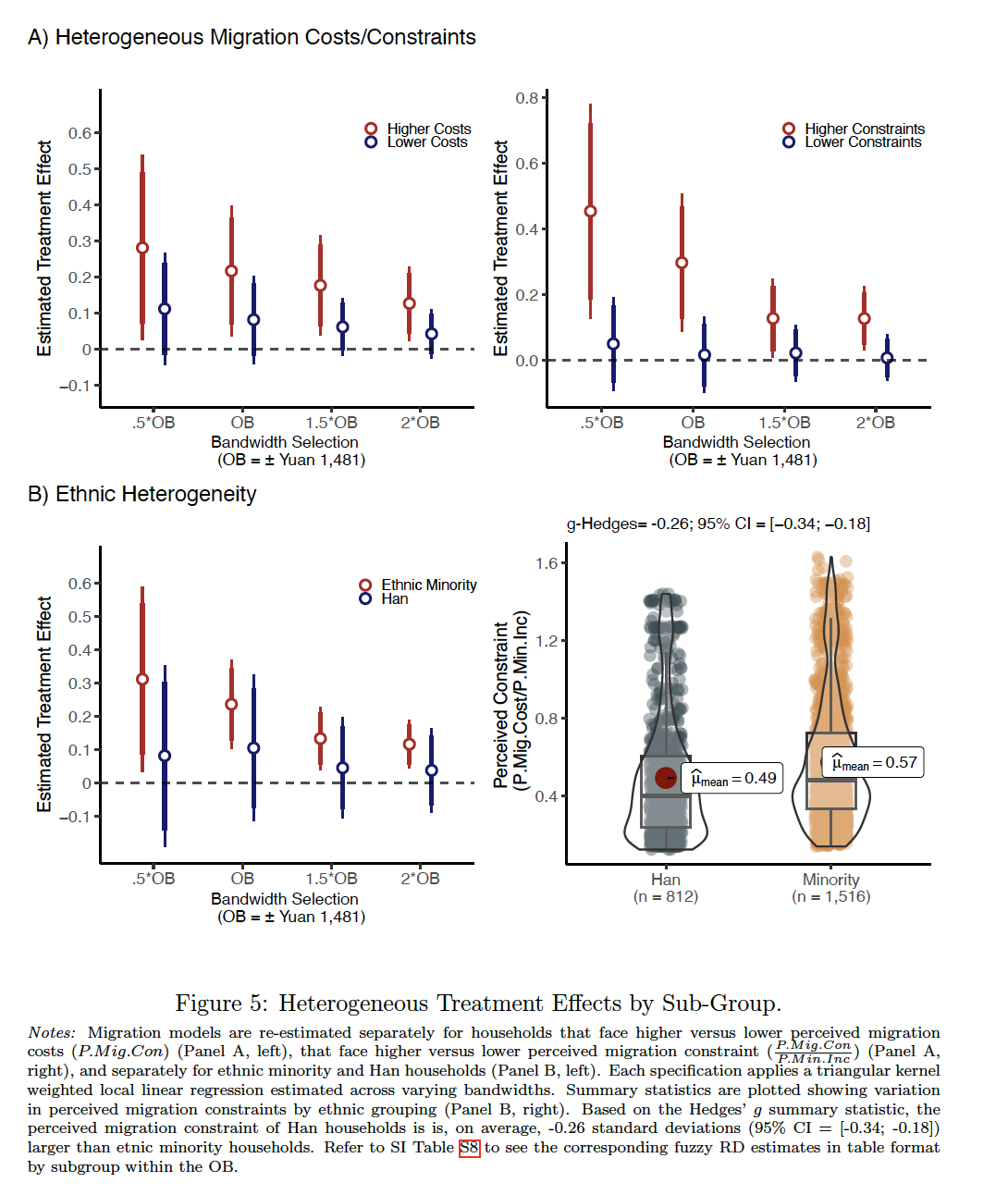
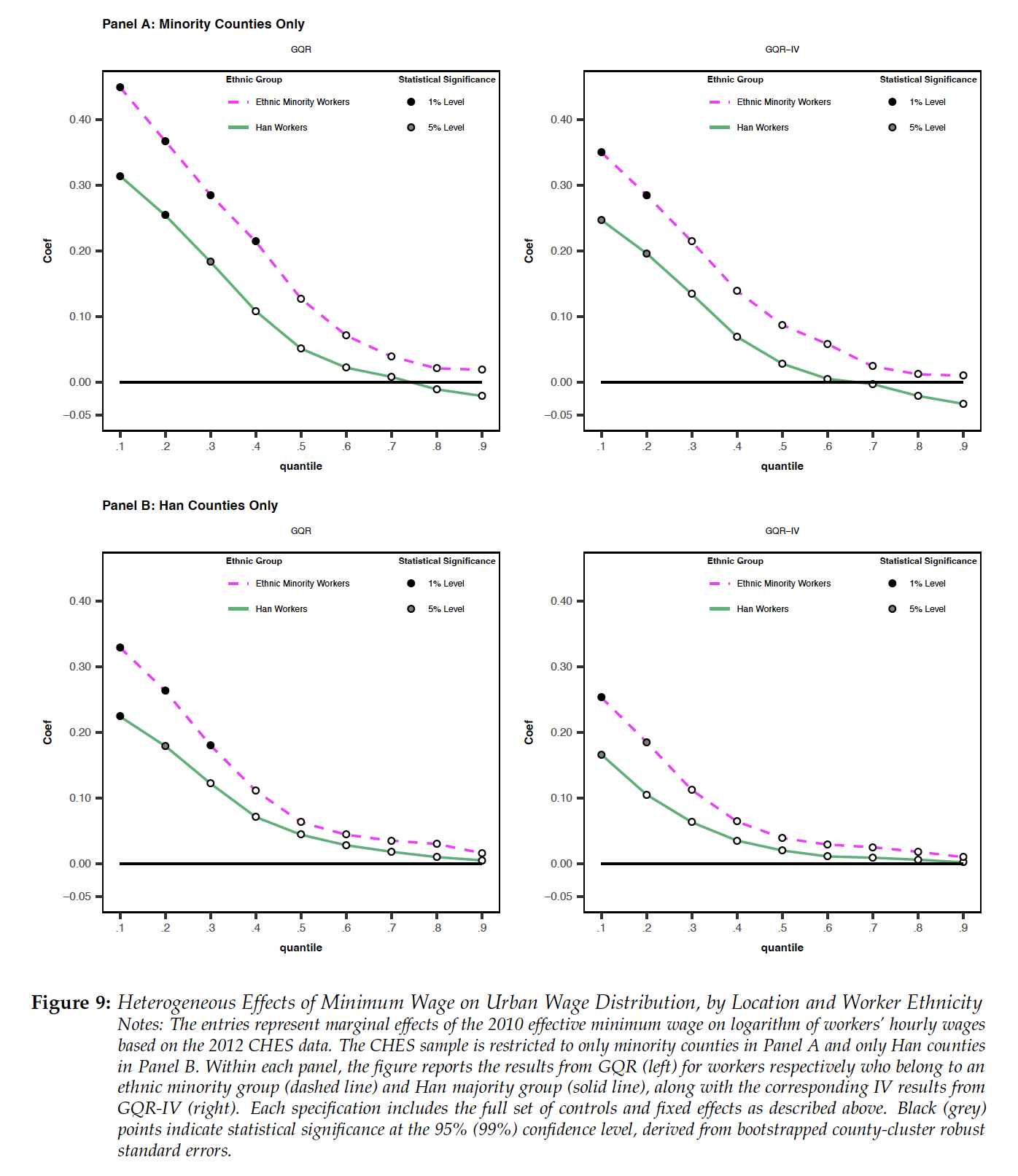
Howell, (2020). Minimum wage impacts on Han-minority Workers’ wage distribution and inequality in urban China. (Journal of Urban Economics)
Topic: A quantile-regression instrument variable design used to study impact of minimum wage on ethnic workers' wage inequality.
Howell, (2020). Industry relatedness, FDI liberalization and the indigenous innovation process in China. (Regional Studies)
Topic: Networked measures incorporated into multiple-equation panel model to study role of industry related-spillovers on indigenous innovation process.
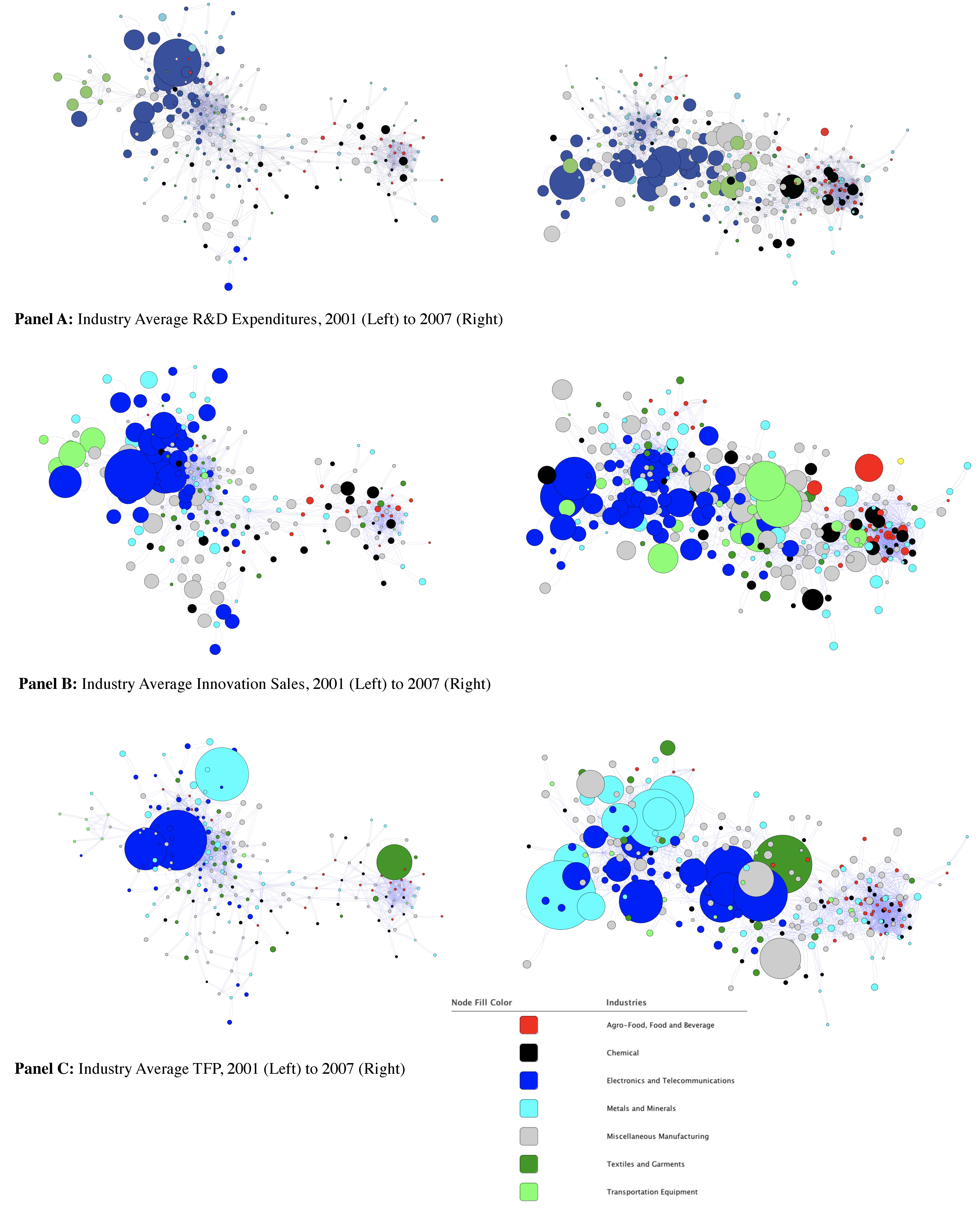
Photo Ops
Meeting with Chinese Premier Li Keqiang, School of Economics, Peking University
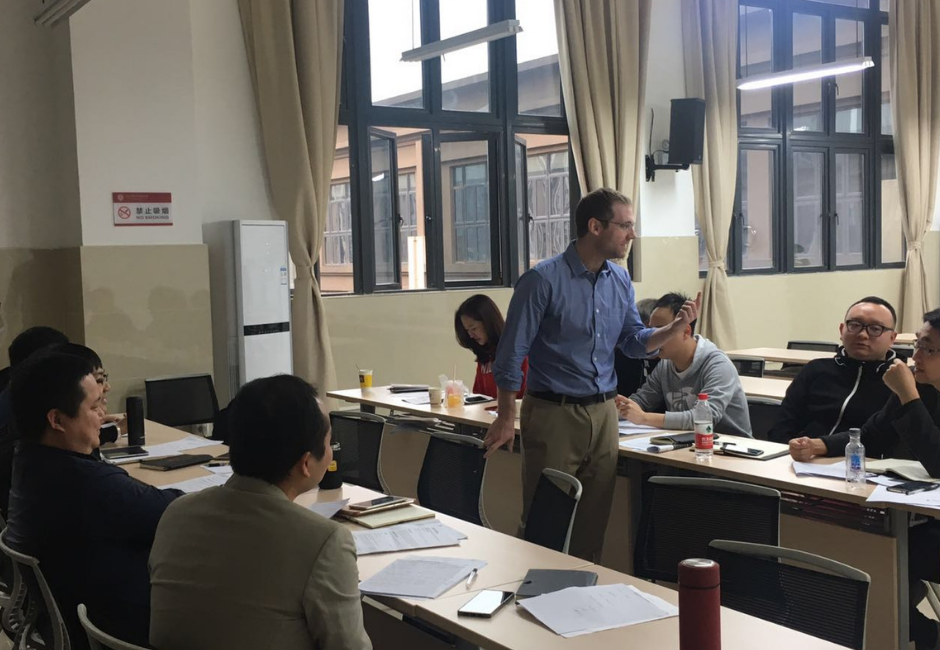
Teaching an executive development program for public managers in the Chongqing government
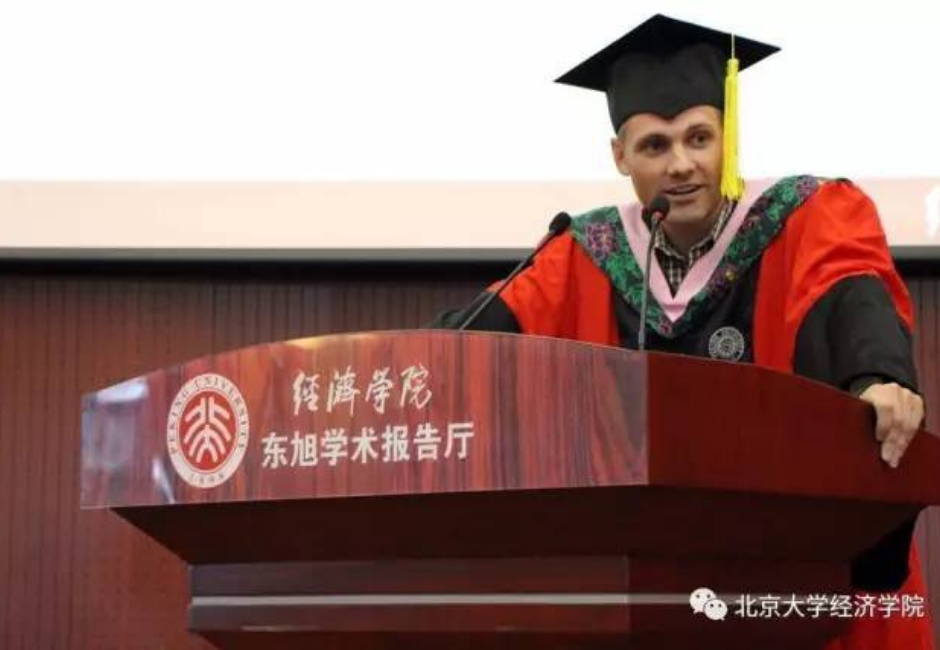
Delivering the PhD graduation commencement speech, School of Economics, Peking University
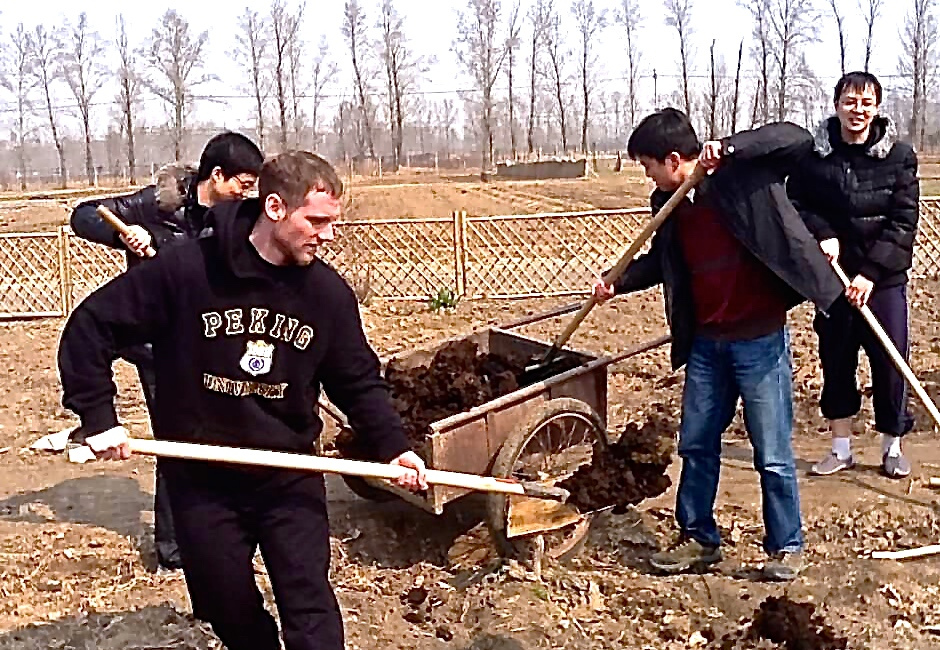
China Fulbright: Farm work with Peking University students
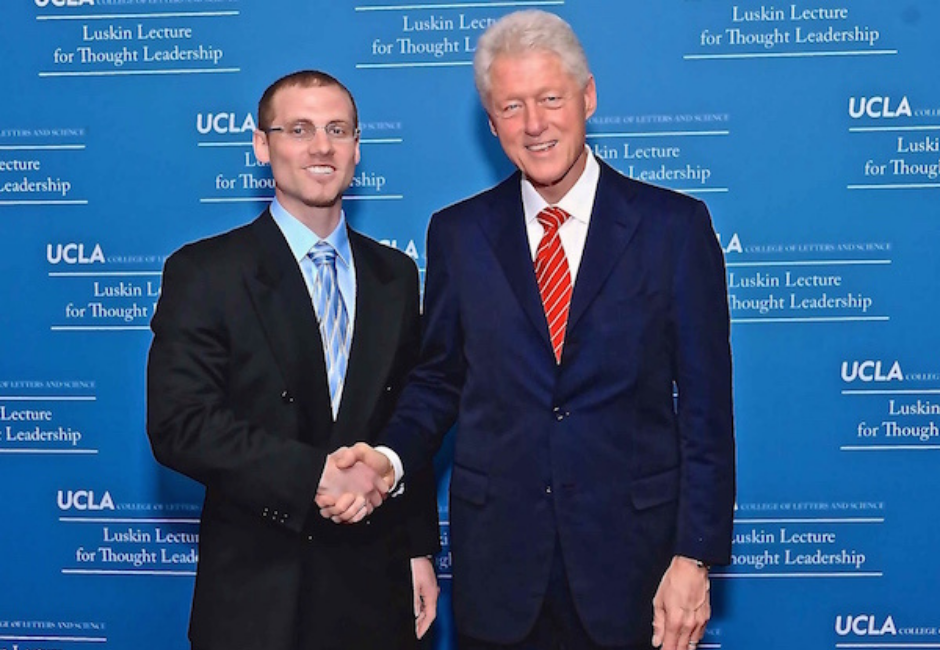
Meeting with President Bill Clinton as recipient of the Young Fellowship Award
Survey research team, Xinjiang University
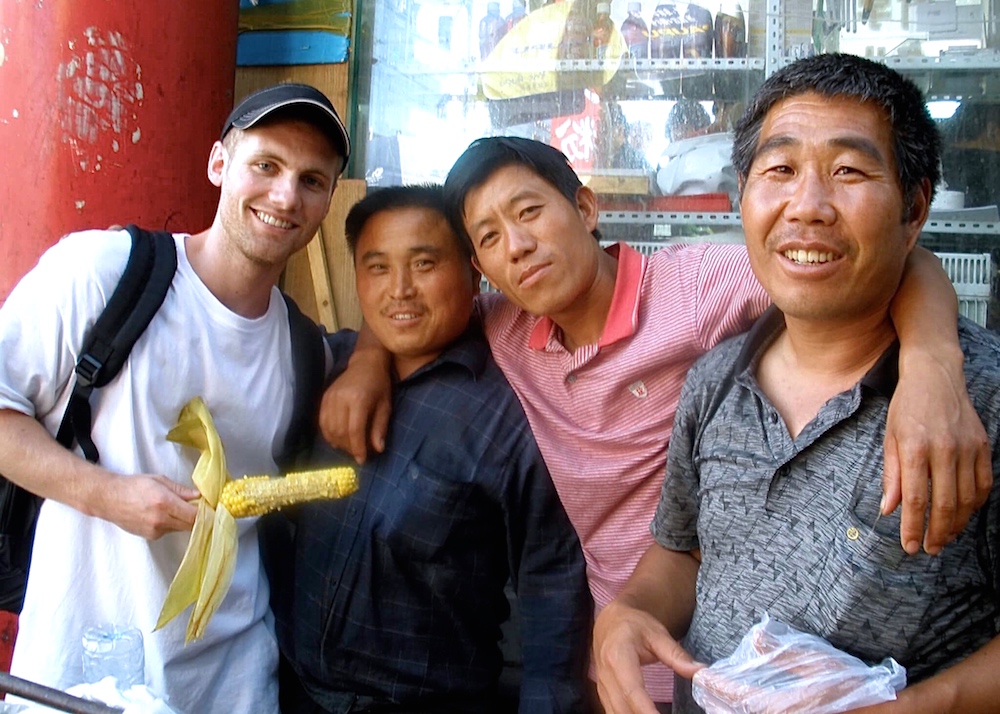
Interviewing Han rural-urban migrants in Urumqi
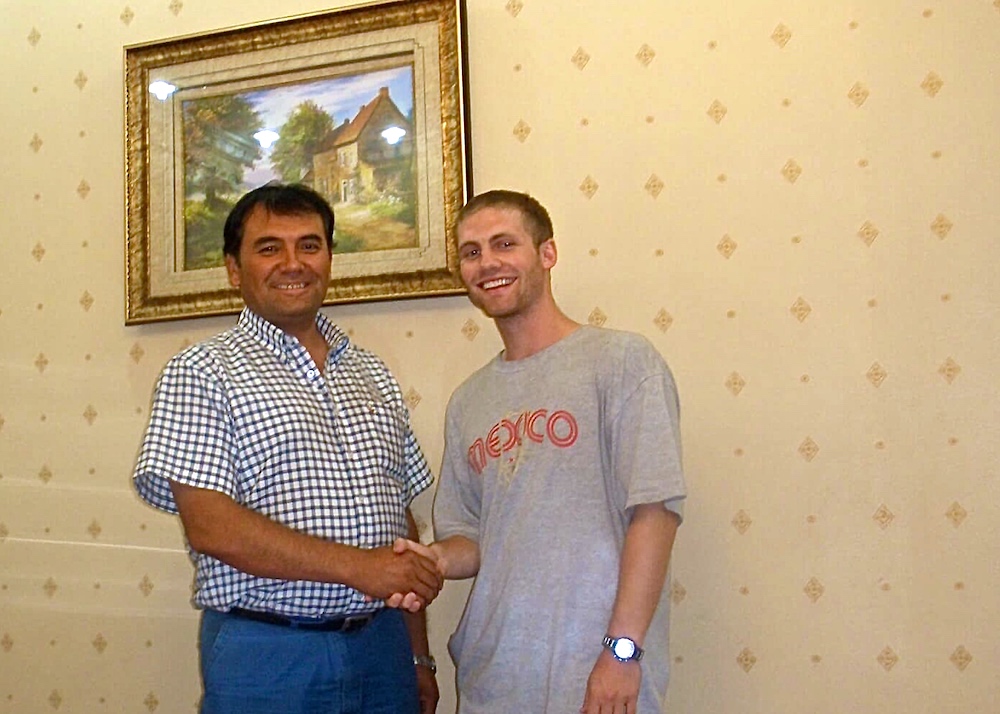
Interviewing Uyghur restaurant owner in Urumqi

Interviewing small-scale farmers at a Kashgar border market
Interviewing Uyghurs in tourist industry, outside of Kashgar
Early Life
Early Life:: Born in Los Angeles, Anthony's origins story is marked by early childhood challenges such as poverty, homelessness, foster care, and the repercussions of parental incarceration and untimely death. After transitioning through six different households and guardians across Los Angeles, Jersey City, and Detroit, Anthony moved to Lansing and was adopted by age 10 by his working-class relatives. Starting formal work at 14, Anthony balanced part-time jobs with school and spent summers working full-time at a GM assembly plant, performing tasks like conveyor belt work and cleaning rust off car parts. As his factory and others shuttered, Anthony observed firsthand the devastating consequences of regional economic decline, manifested by urban decay, unemployment, drugs and crime. In retrospect, it's evident that the roots of Anthony's research aspirations and inspirations are deeply entrenched in his early lived experiences, which nurtured an innate intellectual curiosity about issues related to employment, entrepreneurship, ethnicity, poverty, inequality, and local economic development.
Getting into MSU: Despite these early life challenges, Anthony’s determination led him to initially enroll at a local community college before earning admission to MSU. As a first-generation college student, he found mentorship and a supportive peer community that broadened his perspective and ignited his passion for learning and service. Transitioning from factory and janitorial jobs, Anthony took on roles at a soup kitchen and the Refugee Development Center in Lansing. By senior year, he had raised his GPA from 2.1 to 3.5 and was hired as the lead instructor for a freshman service-learning course. His time at MSU equipped him with intellectual tools to reconcile his past and use adversity as a driving force for growth, inspiring a life-long commitment to public policy and research.
International Experience
International Service: Driven in part by a desire to escape his socioeconomic and geographical constraints, Anthony developed a strong interest at MSU to contribute to global community development. Through luck and determination, Anthony secured scholarships that allowed him to volunteer, research and live abroad, accruing unique real-world experiences that greatly enhanced his traditional academic studies. His global service projects spanned volunteering at a local economic development office in rural Ireland and multiple NGOs operating in impoverished neighborhoods in southern and central Mexico.
International Fieldwork: Anthony began his research career as an undergraduate student at MSU. He obtained a research grant to visit the Chinese Academy of Sciences in Beijing. In that capacity, Anthony designed and implemented his first survey instrument at a migrant skills-enhancement facility. The goal of the project was to understand to what extent the acquisition of new technical skills reduced employment barriers among Beijing’s informal migrant population.
For his Master’s thesis at MSU, Anthony combined several grants to conduct in-depth fieldwork in Xinjiang Uighur Autonomous Region, one of China’s most restive and difficult to access regions. Informed by a mixed-methods design, Anthony identified local contacts, trained local enumerators, and designed a statistical sampling design representative of urban service establishments in Urumqi and Kashgar, collecting nearly 2,000 surveys of Han, Hui, and Uyghur respondents. Analyzing the business survey data, his research findings were among the first to shed light on ethnic-based disparities in wages, self-employment, and mobility in the Chinese context.
UCLA and China Fulbright Experience: After being selected for UCLA Chancelor’s Prize to top PhD applicants, Anthony was admitted by UCLA into the top-ranked Geography department. Anthony received multiple nationally competitive fellowships, including being awarded a China Fulbright Award to conduct dissertation research on China’s competitiveness policy, innovation and entrepreneurship. During this period, he gained access to proprietary rich firm-level data. Harnessing his linguistic and statistical expertise, Anthony constructed measures of local industrial targeting initiatives by scraping public information from Chinese municipality websites. He integrated these measures with the firm-level data to investigate the implications of industrial policy on firm performance. In the later stage of his Fulbright, Anthony also was invited to participate in the China Household Ethnic Survey project (CHES), a significant initiative gathering a select group of international experts to join Chinese counterparts to collect and analyze the country’s first and only representative micro-data on China’s ethnic minority groups.
Work Experience
Peking University: The indelible impact of Anthony’s tenure as a faculty member at Peking University catalyzed a decade-long research agenda on China’s competitiveness policy on firm innovation, productivity and internationalization. During his tenure, he won multiple teaching and research awards, including from the prestigious National Science Foundation of China. Capitalizing on PKU’s proximity to Zhongguancun, often referred to as China’s “Silicon Valley,” Anthony immersed himself into Beijing’s tech scene. Through his position at PKU, he secured co-working space in Garage Cafe, a publicly-funded incubator on Innovation Way, witnessing firsthand the transformation of the area into a policy-induced innovation hub. Anthony also served in an advisory role for a student-led start-up company, and collaborated with partners at the Ministry of Science and Technology on international collaboration projects that fostered exchanges between start-ups in Silicon Valley and Zhongguancun.
Arizona State University: After nearly a decade of living and working abroad, Anthony decided to transition back to the U.S in 2019. Among multiple competing offers, Anthony accepted an academic appointment at Arizona State University, joining the top-ranked School of Public Affairs as an assistant professor of public policy and management. In 2022, he was promoted to Associate Professor, with tenure. Since then, Anthony accepted the appointment as Director for the Center of Technology, Data, and Society, exploring ways to secure funding to support research across the following areas: (i) entrepreneurship, innovation, and local economic and community development; (ii) societal implications of critical and emerging tech; and (iii) the role of U.S. science and technology policy to enhance US global competitiveness.